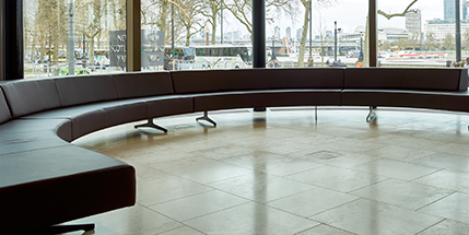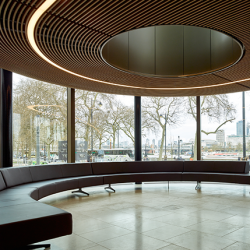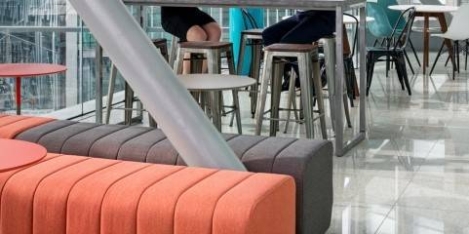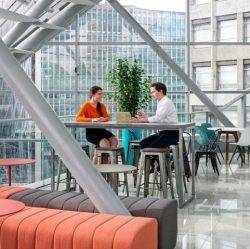October 12, 2017
Working conditions and office design shown to impact on employee performance

New evidence of a strong correlation between productivity, creativity and even profitability with employee working conditions, such as: light, air, noise, health, culture, design, movement and the quality of furniture have been established in a new report. The syndicated research project, Wellness Together, carried out by Sapio Research, of 1000 UK based office workers and 50 Facilities Management experts, suggests a strong link between people feeling catered and cared for by their workplace/employers and how this impacts business performance. Wellness at work is a dominant theme in any discussion about the workplace. But this is not just a discussion about happiness, it is about creating cultures and environments that are conducive to commercial success. The study identifies that in order to achieve true ‘Wellness’ attention to every single component that can impact mental and physical health needs to be considered, from building structures and company cultures through to the physical furniture and fittings that employees require to work efficiently and effectively.






















 UK workers are largely optimistic about the impact automation will have in the workplace, with three in four believing it will give them more time to concentrate on their primary job duties and work more flexibly, claims new research. Workfront’s annual State of Enterprise Work report, which aims to capture not only how work is being done and what challenges office workers see in the present, but also how they see current workplace trends playing out in the near future reveals that 84 percent agreed with the sentiment that “the use of automation in the workplace will let us think of work in new and innovative ways.” 82 percent expressed excitement at the chance “to learn new things as the workforce moves toward more automation;” and while the overwhelming view on automation was positive, around 2 in 5 (38 percent) feared that rising automation will place humans and robots in competition for the same jobs in the future.
UK workers are largely optimistic about the impact automation will have in the workplace, with three in four believing it will give them more time to concentrate on their primary job duties and work more flexibly, claims new research. Workfront’s annual State of Enterprise Work report, which aims to capture not only how work is being done and what challenges office workers see in the present, but also how they see current workplace trends playing out in the near future reveals that 84 percent agreed with the sentiment that “the use of automation in the workplace will let us think of work in new and innovative ways.” 82 percent expressed excitement at the chance “to learn new things as the workforce moves toward more automation;” and while the overwhelming view on automation was positive, around 2 in 5 (38 percent) feared that rising automation will place humans and robots in competition for the same jobs in the future.










October 9, 2017
Our Twentieth Century approach to ergonomics has to change
by Mark Eltringham • Comment, Flexible working, Technology, Wellbeing, Workplace design
(more…)